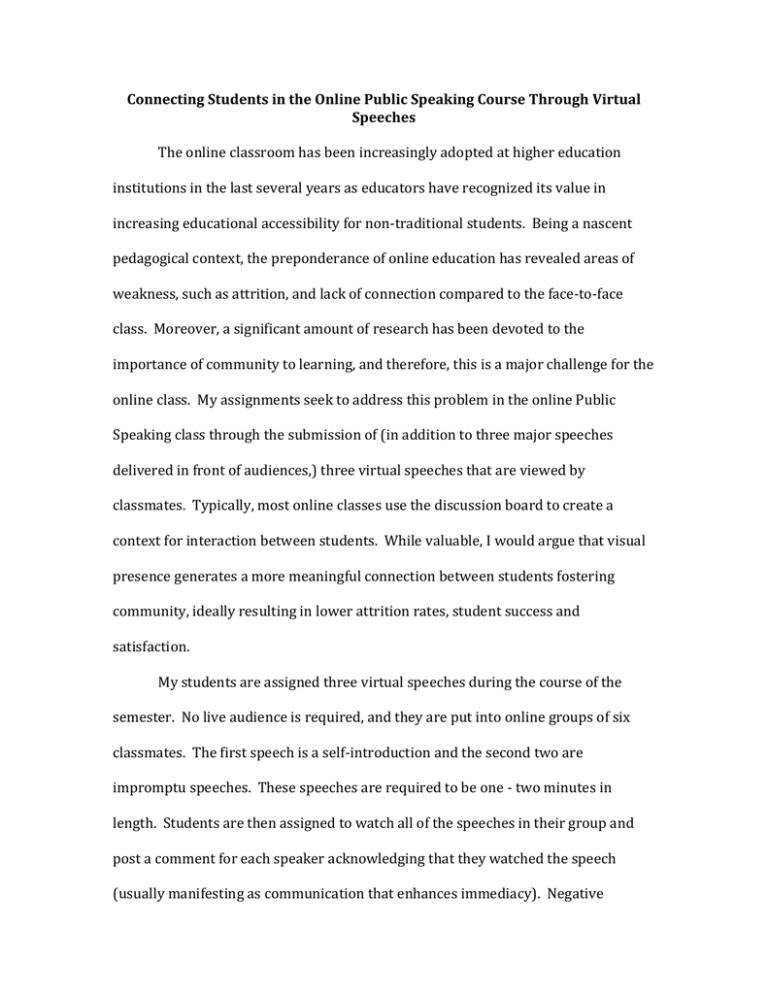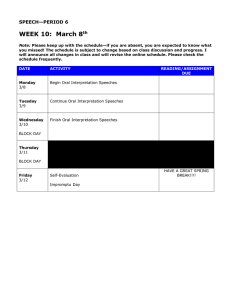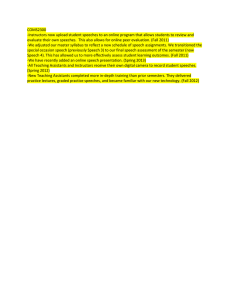Connecting Students in the Online Public Speaking Course Through Virtual Speeches
advertisement

Connecting Students in the Online Public Speaking Course Through Virtual Speeches The online classroom has been increasingly adopted at higher education institutions in the last several years as educators have recognized its value in increasing educational accessibility for non-traditional students. Being a nascent pedagogical context, the preponderance of online education has revealed areas of weakness, such as attrition, and lack of connection compared to the face-to-face class. Moreover, a significant amount of research has been devoted to the importance of community to learning, and therefore, this is a major challenge for the online class. My assignments seek to address this problem in the online Public Speaking class through the submission of (in addition to three major speeches delivered in front of audiences,) three virtual speeches that are viewed by classmates. Typically, most online classes use the discussion board to create a context for interaction between students. While valuable, I would argue that visual presence generates a more meaningful connection between students fostering community, ideally resulting in lower attrition rates, student success and satisfaction. My students are assigned three virtual speeches during the course of the semester. No live audience is required, and they are put into online groups of six classmates. The first speech is a self-introduction and the second two are impromptu speeches. These speeches are required to be one - two minutes in length. Students are then assigned to watch all of the speeches in their group and post a comment for each speaker acknowledging that they watched the speech (usually manifesting as communication that enhances immediacy). Negative feedback is discouraged. This assignment serves two purposes. First, it encourages the students to connect and interact with their classmates in a more personal way than written text on the discussion board allows. Secondly, it gives the students practice creating a virtual speech, which is increasingly becoming an important channel for rhetoric in the contemporary digital culture. I have used these assignments for three semesters and despite the increased technological demands placed on students, I have observed positive results and received an impressive amount of positive feedback on these assignments.


